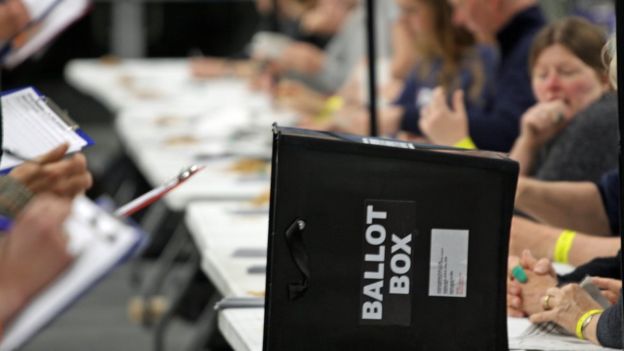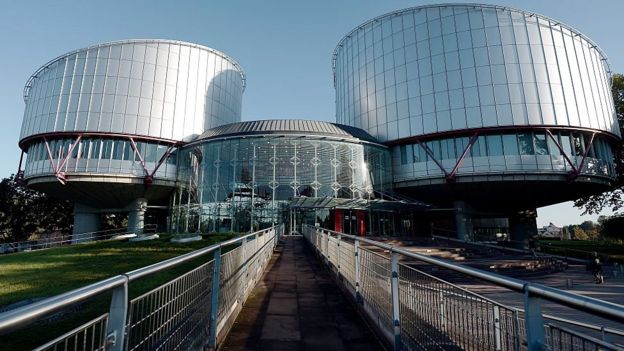With the general election just a few days away, many more of our readers have sent questions about a range of issues affecting Northern Ireland.
Here, BBC News NI answers a selection:
What party is making the most promises for the benefit of teenagers? – Finn
It is hard to say for sure, because all parties would argue their policies on the big issues – such as Brexit and the economy – will be good for teenagers as well as everyone else.
But there are also some teenager-specific polices in the parties’ manifestos. Alliance and the Ulster Unionist Party, for example, both say they would lower the voting age from 18 to 16.
This policy is also supported by Sinn Féin, the SDLP, People Before Profit and the Greens, although none of these parties have included it in their manifestos.
While it’s not a policy as such, the Ulster Unionist Party (UUP) makes much in its manifesto of the fact that anyone under the age of 21 has never had a chance to vote for a functioning assembly, since it collapsed in January 2017. The party pledges to help get it back up and running to benefit young people.
The UUP also makes a commitment to reviewing interest rates on student loans, while the DUP has promised £2m to teach computer science and coding in more schools.
The SDLP calls for more support for under-18s suffering from mental ill health and addiction and wants more training and skills opportunities for young people.
Alliance supports ensuring the minimum wage is at the same level for young people as it is for older people and calls for investment in training and skills programmes.
Sinn Féin’s manifesto did not contain any policies specifically targeted at young people, but it supports keeping student fees “affordable”.
These are only some of the policies outlined; you can find more by checking out our policy guide.
If there was a united Ireland, what is the SDLP’s plan for the NHS? Would disabled people have to pay for healthcare, or get it free? – Phoebs Lyle
 Image copyrightGETTY IMAGES/GPOINTSTUDIO
Image copyrightGETTY IMAGES/GPOINTSTUDIOThe SDLP does not have any firm detail on what health provision would look like in a united Ireland, but the party is committed to establishing a body known as a Commission for a New Ireland.
It would examine what a unified Irish state would look like, including how public services would operate.
As things stand, the SDLP opposes privatisation of the health service in Northern Ireland.
How can an extra quarter-of-a-million voters be added to the register since February? Surely this is totally ludicrous given the population? – Eamon Cadden
 Image copyrightPA
Image copyrightPAIt is certainly a large number, but it can be put down to a number of factors.
For starters, the number of people who were eligible to vote in the last general election, in 2017, was 1,242,698, but the total number of people of voting age was closer to 1,400,000.
The Northern Ireland Statistics and Research Agency’s most recent estimate for the population of Northern Ireland who are aged 18 and above is 1,443,257.
In addition, while 16 and 17-year-olds can register, they cannot actually vote. By Nisra’s most recent estimate, there were about 45,000 of them.
It means there is a difference of about 245,000 between the number of people eligible to vote two years ago and the total number of people eligible to sign up to the register.
Of course, not every person eligible to sign up will have done so, but there are other factors:
Anyone who has moved house since the last time they voted will have had to re-register – which is counted as a new registration. This also applies to anyone who has moved into Northern Ireland.
And of course there are also people who have turned 16 and have therefore become eligible to register for the first time.
There has been no discussion of the European Court of Human Rights in this election campaign – why no reference to this by any of the parties? – Finbarr Lambe
 Image copyrightGOOGLE
Image copyrightGOOGLEThat’s because the European Court of Human Rights (ECHR) is not part of the European Union.
If the UK leaves the EU as planned it would have no impact on its participation in the ECHR, which was established in 1959 on the basis of the European Convention on Human Rights.
That is not to say the UK has to remain singed up to the convention, but Belarus and the Vatican City are the only European countries which are not members and there is no serious debate in Britain about withdrawal.
[“source=bbc”]








